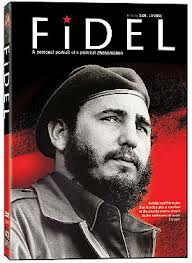Cuba
“Samba” reflects the goodwill of French films style
Photo courtesy
From Olivier Nakache and Eric Toledano, the acclaimed writing and directing duo of The Intouchables, are back with “Samba.” For ten years, Senegalese immigrant Samba (Sy) has stayed under the government radar, taking menial kitchen jobs in the hope of becoming a professional chef. Suddenly, as his longtime ambitions for a better life seem just within reach, immigration authorities hit Samba with an order to leave France immediately. Stubbornly holding onto his dream, Samba pins his hopes for a reprieve on a local immigration advocacy center and Alice (Gainsbourg), an emotionally vulnerable volunteer with little experience but plenty of heart. He finds a second home at the center with Alice and her colleagues, including brusque law student Manu (Izïa Higelin), do-gooder Marcelle (Hélène Vincent) and naïve Maggy (Jacqueline Jehanneuf), as they search for a way for him to stay in France.
During 1 hr. 58 min Olivier Nakache and Éric Toledano reflect a new comic drama style. Both are versatile and irresistible. This film is, in the context of French society, quite embarrassing. The French are often loved for being articulate and sophisticated. But this film reveals that there is still profound resistance to engage with the issues of representation of French society because of resistances to debate about immigration, multiculturalism, and race. Anxiety, confusion, and discomfort are elements seen in this film in which ending will surprise you.
“Fidel” a reunion with the past
By Jenny Alvarez
Photo Courtesy
“Fidel” provides a unique view of Cuba’s controversial and most polarizing leader. In 1968, Castro took filmmaker and activist Saul Landau on a week-long jeep ride through the eastern mountains. There, he plays baseball with a group of peasants, visits his pre-school and trades jokes with a 98-year old man. Fidel also listens to the people’s concerns about food distribution, bad roads and transportation. Landau captures Cuba’s revolutionary chief early in the morning in his tent. The camera zooms in on his dirty and delicate fingernails holding his trademark cigar while he tells a story of Símon Bolivar and offers tactical advice to guerrilla warriors throughout the Third World.
It has spectacular photography and editing with hot Cuban music provide the cinematic aesthetics that give this film beautiful form to accompany its exciting content. This film feels more like a series of toasts at a testimonial dinner than a documentary. All the historical context varies with some concepts such as imperialism has no moral standing to complain of human rights violations. Dubbing is bad since only hear the English version and not clearly heard the Spanish version so as a viewer you have to figure out if Fidel is saying all the words said in the English dubbing.








